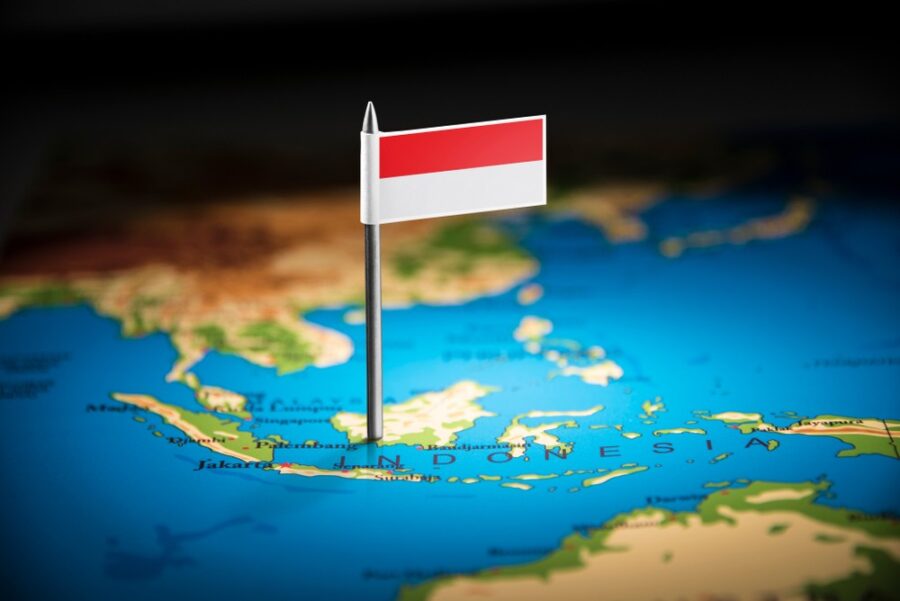Indonesia forecasts online gambling turnover to reach RP150.36 trillion

The Indonesian Financial Transaction Reports and Analysis Center has predicted that online gambling turnover in the country could reach RP150.36 trillion (US$9.0 billion)1 IDR = 0.0001 USD
2025-10-31Powered by CMG CurrenShift by the end of 2025.
The agency revealed that online gambling revenue totaled RP976.8 trillion (US$58.7 billion)1 IDR = 0.0001 USD
2025-10-31Powered by CMG CurrenShift from 2017 to mid-2025 across 709 million transactions. Player numbers surged from 3.79 million in 2023 to 9.78 million in 2024, with total deposits hitting RP51.3 trillion (US$3.1 billion)1 IDR = 0.0001 USD
2025-10-31Powered by CMG CurrenShift.
Describing the rising figures as a “national socio-economic threat”, the agency said it feared that, without intervention, the RP150.36 trillion (US$9.0 billion)1 IDR = 0.0001 USD
2025-10-31Powered by CMG CurrenShift turnover could increase.
It said that of the 8.8 million online gamblers in 2024, 3.8 million were in debt. Some reported spending up to 90% of their income on gambling.
In response, the agency has launched Operation Honeybee, a coordinated initiative to curb online gambling and corruption. The operation uses financial intelligence data to detect suspicious transactions and strengthen cross-agency enforcement.
With stricter enforcement led by Communication Minister Meutya Hafid and National Police Chief Listyo Sigit Prabowo, the agency expects a 58% reduction in online gambling activity.
Officials have stressed that Operation Honeybee is not limited to analysis and also includes law enforcement, civil servant discipline, and state revenue collection.
Abi Bray brings strong researching skills to the forefront of all of her writing, whether it’s the newest slots, industry trends or the ever changing legislation across the U.S, Asia and Australia, she maintains a keen eye for detail and a passion for reporting.
Verticals:
Sectors:
Topics:
Dig Deeper
The Backstory
Why the forecast matters now
Indonesia’s projection that online gambling turnover could hit RP150.36 trillion by the end of 2025 is not arriving in a vacuum. It comes after years of swelling digital betting activity that regulators say has embedded itself into daily financial flows and household budgets. The government’s financial intelligence arm has labeled the trend a national socio-economic threat, warning that without sharper intervention, the market could expand further and pull more Indonesians into debt and fraud. That sets the stage for tougher rules, broader enforcement and a test of how far the state can push platforms, payment firms and police to choke off a sprawling, decentralized trade.
The stakes extend beyond headline turnover. Officials have flagged surging player counts, mounting personal indebtedness and the spread of criminal networks that mask gambling as legitimate tech ventures. The result is a policy priority that cuts across ministries: the Communication and Digital Affairs Ministry is leading with platform takedowns and access blocks, the police are pursuing operators and facilitators, and the financial watchdog is freezing suspect accounts and tracing flows. The forecast underscores the urgency behind these moves and frames what success or failure could look like when regulators tally the impact in 2025.
Crackdown tactics: from bank freezes to ad sweeps
A cornerstone of the campaign has been financial disruption. The Financial Transaction Reports and Analysis Center, known as PPATK, has blocked more than 28,000 bank accounts linked to suspected online gambling transactions, targeting schemes that trade or recycle dormant accounts to move funds. The mass suspensions prompted public confusion when some account holders reported freezes, but officials said inactivity and suspicious patterns triggered temporary holds, and legitimate customers could reactivate accounts through their banks. The message to the market: unused accounts are vulnerabilities, and facilitating anonymous flows will draw sanctions.
On the demand side, authorities have widened an advertising takedown blitz. In the first week of the year alone, the Communication and Digital Affairs Ministry reported blocking 43,063 gambling-related digital ads across social media, websites and file-sharing platforms. The ministry framed the effort as part of a child-protection and digital-hygiene push, noting that millions of ads have been removed since 2017. The volume illustrates how quickly content resurfaces and why regulators are pressing platforms to upgrade screening tools and close loopholes that let promotions reappear under new domains, IP addresses or app wrappers.
Taken together, the account freezes and ad removals aim to raise friction on both ends of the pipeline: it should become harder to pay in and cash out, and harder to find and trust sites in the first place. But the persistence of new domains and the ease of rerouting payments through informal or offshore channels point to the limits of any single tool, reinforcing the government’s plan for a coordinated, continuous response.
New rulebook in the works
The regulatory spine of that response is being tightened. Jakarta has signaled stronger online gambling rules focused on prevention and accountability across the digital stack. At a recent briefing, the Ministry of Communication and Digital Affairs said upcoming regulations will clarify responsibilities for police, internet service providers and fintech companies, with sharper penalties for violators. That includes requiring ISPs to deploy stronger monitoring systems and guardrails to block access and keep minors off illicit sites, as well as clear escalation paths when platforms or payment rails detect suspicious patterns.
Lawmakers are also pushing for consequences beyond corporate compliance. A member of Commission VI urged stiffer penalties for community leaders or officials found to be involved, signaling that political and social complicity will carry costs. The prospective framework reflects lessons learned from the cat-and-mouse phase of enforcement: a durable deterrent needs both fast takedown machinery and predictable liability that changes risk calculations for businesses and intermediaries.
Enforcement on the ground
Police work is the third leg of the strategy. Since November, the national anti-gambling task force has handled 1,271 cases and named 1,456 suspects, according to National Police Chief Listyo Sigit Prabowo. In coordination with PPATK, authorities have frozen hundreds of accounts and confiscated assets worth hundreds of billions of rupiah. Investigators say sophisticated groups—some with links to China—camouflage operations as IT businesses, seed small deposits to widen participation and rely on a web of fronts to insulate organizers from day-to-day transactions.
The task force’s asset-centric approach dovetails with the account-freeze campaign and highlights an emphasis on disruption over optics. Seizing funds and blocking conduits inflict immediate operational pain on site operators and affiliates. Yet the case load—and the fluidity of new websites and payment routes—suggests sustained pressure will be required to bend the curve. That reality helps explain why officials emphasize continuous, cross-agency coordination rather than one-off raids or headline closures.
Measuring progress and risk
How will Indonesia judge success? Officials have outlined two near-term metrics: a material reduction in transaction volumes and fewer new entrants, particularly youths. The ministry’s ad takedown numbers and the task force’s case closures offer early reads, but financial indicators—such as the scale and speed of deposits and withdrawals—will likely be more telling. If flows meaningfully slow and churn diminishes, the RP150.36 trillion turnover scenario could be tempered. If not, authorities may escalate with broader platform liability, deeper KYC requirements at fintechs and more aggressive ISP-level blocking.
The social backdrop is equally important. Regulators say millions of players are at risk of debt, with some reporting that they spend a disproportionate share of income on betting. That creates a feedback loop: financial stress fuels demand for quick-win schemes, which in turn feed the very platforms the state is trying to shut. Public education campaigns and tighter controls on lending and e-wallet top-ups may therefore feature more prominently in the next phase, alongside continued enforcement.
Regional revenue pressures shape policy debate
Indonesia’s hard line stands in contrast to revenue arguments emerging elsewhere in Southeast Asia. In the Philippines, the Bureau of Internal Revenue recently warned that a sweeping online gambling ban could jeopardize its PHP3.2 trillion revenue target for 2025, urging policymakers to weigh fiscal trade-offs even as they consider tightening controls. That debate underscores a tension many governments face: balancing social harm reduction with tax realities and enforcement capacity.
Indonesia has opted to accept near-term enforcement costs and forgo potential taxable flows from an illegal market in favor of social and financial stability. The forecasted turnover—and the trajectory that produced it—explains why. The policy bet is that a coordinated clampdown can shrink the market meaningfully, protect households and deter organized actors. The coming months will test whether new rules, financial blockades and platform pressure can keep pace with the industry’s well-honed ability to adapt.







